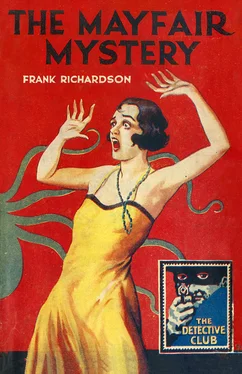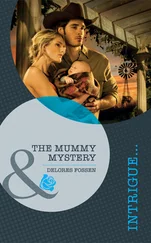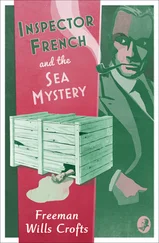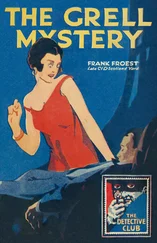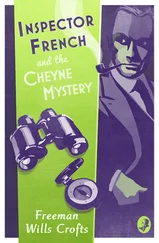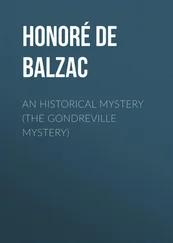Harding had listened in astonishment to the statement made by Sir Algernon. He had never heard that his friend was building a house in Pembroke Street. Yet another house!
He turned to the architect.
‘You surprise me, Sir Algernon. Clifford and I, as you know, are old friends, and he never mentioned to me the fact that he was building a house. The ordinary man can’t buy a motor without boring his friends to death with the subject. It is very strange that Clifford should not have mentioned to me a little thing like that. How long has it been built?’
‘Oh, about six months!’
‘Six months!’ exclaimed the other. ‘But he doesn’t live there?’
‘No,’ replied Sir Algernon, ‘I don’t think he intends to. I think the idea was to let it furnished. It is one of his hobbies, I think.’
‘A very expensive hobby,’ interposed Lampson Lake.
‘Fortunately, he can afford expensive hobbies,’ said the architect. ‘I understand that it is superbly furnished. And now I come to think of it I remember he said that if he let it he would expect to get £2000 a year. No. 69 is one of the smallest houses in Pembroke Street. The idea of £2000 a year is absolutely preposterous.’
To the barrister’s thinking, the whole scheme was preposterous. No matter what Clifford Oakleigh’s fortune might be, it would not stand a habit of building and furnishing houses on which a prohibitive rent was placed.
‘I should like to have a look at the place,’ continued Sir Algernon. ‘But he made me understand,’ he added laughing, ‘that he would never receive me in the house…so as to avoid painful memories as to my professional pride. However, he gave me an excellent dinner at the Savoy the other night. He is a very curious man; certainly, he is a very curious man.’
‘Not for a genius,’ interposed Harding.
It seemed to him uncanny that these four men should be sitting up at night talking of a dead man as though he were alive. Two or three times it had been on the tip of his tongue to tell them of the tragedy that had just occurred. Had it not been for the fact that Reggie might be hopelessly involved therein, he would have spoken. Another reason that kept him silent was the incongruity of his position. His best friend was dead, and he was taking supper at the Gridiron. Why was he taking supper at the Gridiron? He himself hardly knew. His nerves had been shattered by the events of the night.
‘You think he is a genius?’ asked Robinson.
‘Certainly he is,’ Harding replied. ‘Ever since I have known him he has been a genius. He was a genius at Eton, he was a genius at Oxford, and he has been a genius in London. He has one of the largest practices of any physician in London, and what is more he hardly ever has a failure. Then look at “Baldo”. That was really one of the greatest inventions of the age.’
He was alluding to a preparation invented by Clifford that consisted of a white cream which one applied to one’s face in the morning and it instantly removed the night’s growth of hair. By this useful device, a complete substitute for the razor, Clifford Oakleigh had already made nearly half a million.
‘A slight application of “Baldo” to your whiskers, Sir Algernon, would, I am sure, be efficacious,’ said Robinson.
‘Oh, damn my whiskers,’ replied the architect.
Robinson politely responded: ‘My sentiments entirely.’
‘Directly Robinson begins to talk about whiskers, I go home,’ said Lampson Lake, rising.
‘I, too.’
Harding paid his bill and, incidentally, Lampson Lake’s, and left the club.
CHAPTER VI
THE TROUBLE WITH MINGEY
THE next morning, when Harding reached his chambers in King’s Bench Walk, he noticed that his clerk, Mingey, was looking more dismal and lugubrious than usual.
Were it not that the man was so excellent at his business, Harding could not have tolerated the presence of so lamentable a figure. Mingey was six feet tall, intensely lean, with a dank, black, uncharacteristic, drooping moustache, and a pallid face that looked as if it required starching. He always wore shiny black clothes, and presented the appearance of an undertaker with an artistic taste in his calling. Today there were red rims round his colourless eyes.
‘Cheer up, Mingey,’ said Harding, heartily,
‘this is not your funeral, is it?’
‘Excuse me, sir, but something terrible has happened…my daughter, sir.’
‘Ill, is she?’ inquired Harding. ‘I’m very sorry…’
He went to the table and cast his eyes over his briefs.
‘Worse than that, sir,’ replied the clerk, ‘she has disappeared.’
‘Disappeared!’ echoed the K.C. ‘Perhaps she has eloped,’ he suggested.
‘No, sir, she is not that sort of girl. She never had, to my knowledge, any love affairs. She once did show a sort of feeling for one of our ministers, but he turned out to be engaged to a lady in Scotland, so nothing came of that.’
‘Tell me all about it,’ said Harding, seating himself at his table and preparing to listen.
Succinctly the clerk made his statement. His experience of the Law courts enabled him to do a very unusual thing. He told a simple story in a simple way. It appeared that Miss Mingey was devoted to the creed which her father had discovered was, of all creeds, the most suited to his spiritual wants. [Mr Mingey was, by persuasion, a devout Particular Strict Baptist: an intensely select creed with only two places of worship, one in Peckham and the other in Monmouth Road, Bayswater.] An entirely good girl. She took no interest in clothes or young men. She was, as her father put it, ‘an intellectual girl much given to book-learning.’ As to her appearance, even paternal pride would not enable him to say that she was good-looking.
‘Here is her photo, sir,’ he added to prove his statement.
But the photograph did not quite bear out his contention.
Harding gazed at it intently.
It represented a girl of about twenty—nineteen Mingey maintained was her actual age. Her features, so far as one could judge from a full-face photograph, by a cheap and inadequate practitioner, were regular; she wore spectacles; her hair was done in an unbecoming way; her dress was abominable. It was rather clothing than clothes. With no evidence as to her complexion and her figure one could not say whether the girl was good-looking or plain; but the fact that she took no trouble with her hair, that her dress stood in no relation to the fashion—even, so far as he knew, to Bayswater fashion—that she was photographed in spectacles, proved that she regarded herself as unattractive. A girl who takes this view is almost certain to be right.
He handed the photograph back.
According to the father’s story, after a meat-tea with her mother she had gone out to post a letter. She did not return.
‘She was happy at home, Mingey, was she?’
‘Perfectly, sir. She always attended service twice on Sundays. No, I have never known a girl who was happier, or who had more reason to be happy.’
‘Quite so,’ said the K.C. ‘And no affair of the heart, you say?’
‘Certainly not, sir.’
‘But as to the minister who married the Scotch lady?’
‘Sarah had too much self-respect, sir, to get mixed up with a married man. Directly Mr Septimus Aynesworth married, she—so to speak—cut him out of her life.’
‘Did you go to the police-station?’
‘First thing this morning, sir.’
‘Well, my dear Mingey, I shouldn’t be alarmed if I were you,’ he said, trying to administer consolation. ‘It may be some curious freak…some girlish whim. You will probably find her at home when you get back.’
Mingey shook his head.
‘I’m afraid not, sir. You’ve noticed there have been two mysterious disappearances lately of young girls. They both met their death. There are always three of these things! Sarah will be the third.’
Читать дальше
